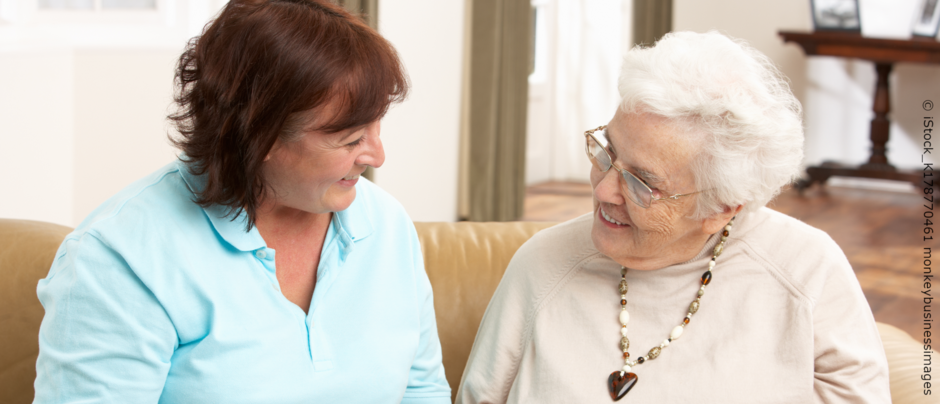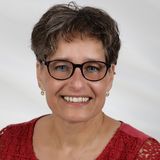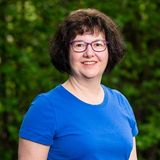
As part of the FAMOUS project, nine Advanced Practice Nurses (APNs) are responsible for the case-related care of multimorbid patients in outpatient care close to the general practitioners (GPs).
The APNs work in GP practices in rural areas of the Rhineland-Palatinate.
| Sabine Bott (M.A.) Praxis Curamed, Osthofen |
| Lara Brehm (M.A.) HVZ Daun
|
 © Fotostudio Kreuzer Ingelheim | Ute Drevermann (M.Sc.) Ärzteteam Büchenbeuren |
 © Tom Wedel | Maria Gerz (M.Sc.) Allgemeinarztpraxis Dr. Verena Maar, Burgbrohl |
 © Fotostudio Backofen LU | Ingo Hentel (M.Sc.) MVZ Westhofen |
 © PM Studios Bitburg | Ines Kopp (M.Sc.) Hausarzt-Praxis Tawern |
 © privat | Christine Leyendecker (M.A.) ÜBAG Dr. Alois Pitzen, Sandra Pitzen, Dr. Adelheid Pitzen-Probst, Erich Filinski, Dr. Dorothe Marin, Daun |
 © heidifoto | Nicole Schüßler (MScN) Praxis für Allgemeinmedizin, Innere und Sportmedizin Axel Alexander Schülgen, Flammersfeld |
| Thaís Souza (cand. M.Sc.) Gemeinschaftspraxis Dres. Klein & Schreiber, Remagen |
Advanced Practice Nurses (APNs) play a crucial role in the FAMOUS project. They have a nursing license, at least two years of nursing experience and an academic degree - usually a Master's degree - in a nursing-related field. Based on what they learned in their studies and the project-specific training they received, they take on the case-related care of multimorbid patients. They work in an interprofessional and cross-sectoral manner with a high degree of both curiosity and readiness to innovate.
The basis of their work is a person-centred approach that focuses on the needs and preferences of patients. APNs promote patient autonomy and involve patients in decisions based on shared decision-making. The goal of their work is to contribute to stabilizing the health and home care situation of patients. Their work is characterized by a readiness to engage in interprofessional coordination and cooperation.
Their tasks include conducting a thorough assessment and identifying support needs. They monitor the patient's physical and psychosocial condition, assess their life and care situation, and ask about individual needs and preferences. They use standardized testing procedures and conduct a medication assessment. They evaluate the assessment together with the patient and, if applicable, his/her family members and create an individualized care plan based on it. If this is not already being done by other care institutions (such as ambulant care services), they also implement the care plan. They monitor and continuously adjust it, if necessary. In addition, they ensure reciprocal transfer of information between all the involved care institutions. The APNs work closely with the GPs, meeting with them weekly for case discussions and consulting them for medical care of the patients as needed.
The competencies and deployment options of APNs, who perform complex tasks independently and control processes, are clearly distinct from those of VERAHs and NäPas.[1]
[1] VERAH stands for Healthcare assistant in GP practice "Versorgungsassistentin in der Hausarztpraxis" and NäPa stands for Non-medical practice assistants "Nichtärztliche Praxisassistentinnen". Both terms are used in Germany as an additional qualification for medical professionals.
VERAHs und NäPas are qualified medical professionals who work in GP practices and assist GP in the care and management of patients.
The APNs in the FAMOUS project are employed in GP practices in rural areas in the Rhineland-Palatinate for a period of 36 months from 1 April 2021 to 31 March 2024. They are part of the local practice team, and their scope of employment typically is between 50% and 100%.
At the beginning of their employment, from April to July 2021, the APNs received a project-specific training. Since August 1, 2021 the APNs have been working in the GP's practice, and since October 1, 2021 they have been providing care for multimorbid patients there. Accompanying the work in the GP practice, the training continued until September 2022 with a total of 500 hours. It focused on the GP practice setting, multimorbidity, and the role and responsibilities of APNs. Furthermore, the project team at the Catholic University of Applied Sciences Mainz accompanies the APNs throughout their employment.
The main focus of their work in the GP's practice is the case-specific person-centred care of multimorbid patients through delegation. Each patient is cared for by an APN for a period of 12 months. Care is provided both during consultation hours at the practice and by visiting patients at their homes. Case discussions between the APN and the GP takes place once a week. The APNs are also responsible for internal practice and project-specific documentation, as well as the forwarding of research data.
Within the FAMOUS project, a connection between nursing research and practice is established with the aim of testing a new field of activity for Advanced Practice Nurses (APNs) and pioneering in the nursing profession. The field of activity for APNs is diverse and versatile, offering room for creativity and personal initiative. This allows academically qualified nursing professionals to work independently and autonomously in direct patient care according to their qualification level. Therefore, the project makes a forward-looking contribution to the utilization of the academic potential of nursing as well as to the development of the nursing profession in Germany.
The application process has been completed. However, you are welcome to contact us if you are interested in the progress of the FAMOUS project.